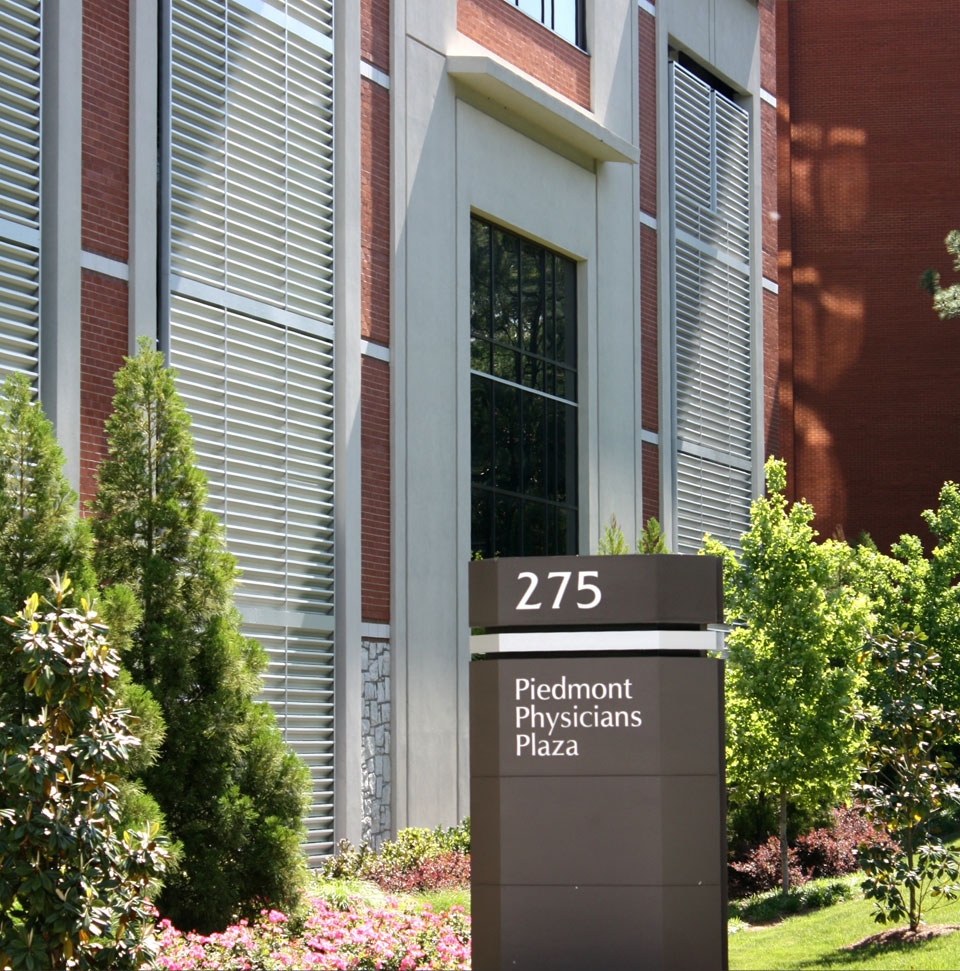FAQs
After Hours
Need to contact us after hours or on a weekend?
Preventive Care
What is a Pelvic Exam?
The physician examines the external genitals (vulva and perineum), the vagina and the cervix with a speculum, and the uterus and the ovaries to determine overall health. This is recommended annually.
What is a Pap Smear?
A pap smear is a simple screening procedure for cervical cancer and pre-cancer. The cervix is the opening of the uterus. During the routine procedure, cells from your cervix re gently scraped away and examined for abnormal cell growth. Cervical cancer is caused by the Human Papilloma Virus (HPV). HPV is a common, sexually transmitted virus and usually has no symptoms or warnings. HPV testing may also be done with the pap smear.
When do I need a Pap Smear?
Your first pap smear should occur at age 21. However, please note we see patients in their teen years for routine gynecologic health screening, problems, and contraception.
Your doctor will advise you on the recommended frequency of pap smears based on your individual risk factors, though generally the pap smear will be done less than annually.
What is HPV?
HPV is the most common sexually transmitted infection (STI). HPV is a different virus than HIV and HSV (herpes). 79 million Americans, most in their late teens and early 20s, are infected with HPV. There are many different types of HPV. Some types can cause health problems including genital warts and cancers. But there are vaccines that can stop these health problems from happening.
Learn more about HPV from the CDC at www.cdc.gov/std/hpv/stdfact-hpv.htm.
What is the HPV vaccine and should I get it?
The HPV vaccine is safe and effective. It can protect against diseases (including cancers) caused by HPV when given in the recommended age groups. The CDC recommends HPV vaccination at age 11 or 12 years (or can start at age 9 years) and for everyone through age 26 years, if not vaccinated already.
Vaccination is not recommended for everyone older than age 26 years. However, some adults age 27 through 45 years who are not already vaccinated may decide to get the HPV vaccine after speaking with their healthcare provider about their risk for new HPV infections and the possible benefits of vaccination. HPV vaccination in this age range provides less benefit. Most sexually active adults have already been exposed to HPV, although not necessarily all of the HPV types targeted by vaccination.
At any age, having a new sex partner is a risk factor for getting a new HPV infection. People who are already in a long-term, mutually monogamous relationship are not likely to get a new HPV infection.
Learn more about HPV vaccine from the CDC at www.cdc.gov/std/hpv/stdfact-hpv.htm.
What is a Breast Exam?
As part of your routine exam, your doctor will gently manipulate your breasts to feel for any lumps or irregularities. She will also examine your breasts or unusual discoloration, dimples or puckering of the nipple.
How often should I perform Breast Exams at home?
The purpose of breast self-exams is to learn what your breasts feel like so you can notify your doctor of significant changes. We encourage our patients to perform breast self-exams at least once a month. Most women find these easiest to do in the shower or lying flat on their backs. Use a gentle rotating motion to feel your breasts and call your doctor if you feel any lumps or notice an external change such as discharge from the nipple, dimpling or puckering of the nipple, redness or scaliness.
What types of birth control are available?
There are a number of options available to women seeking to prevent pregnancy, although no method is 100 percent guaranteed. They include:
- Diaphragms
- Oral contraceptive pills, patches or rings
- Progesterone injections and progesterone implants (Nexplanon)
- Intrauterine devices (IUD)
- Sterilization
- “Natural” methods such as timing intercourse to avoid ovulation
Specialty Services
How is a colposcopy performed?
The colposcopy is performed in the office and takes about 15 minutes. We examine the patient’s cervix under magnification, rinse the cervix with several solutions and obtain very small biopsies after using local anesthesia. Patients might have some light bleeding afterwards with some mild cramping, but can resume normal activities immediately. Results take a little over a week.
What is involved in a LEEP?
Our doctors administer a local anesthetic (lidocaine) and perform this brief procedure in the office. We remove the abnormal cells and some of the surrounding cervical tissue. Afterwards, patients might experience some discharge, bleeding and cramping for a couple of days, and they are asked to refrain from sexual intercourse for two weeks following the procedure.
What is an endometrial biopsy?
An endometrial biopsy is a procedure in which a sample of tissue from the lining of the uterus (the endometrium) is removed. The tissue is sent off to be examined for cancer or any other cell abnormalities.
This is a simple office procedure; however, it is important for it to be performed by a medical professional who has experience performing these tests.
An endometrial biopsy might be recommended in the following clinical scenarios: heavy or prolonged periods, thickened uterine lining on ultrasound, post menopausal bleeding, or irregular periods. It is the most common test done to diagnose endometrial cancer.
What is an SIS or saline infusion sonogram?
A saline infusion sonogram (also known as an SIS or sonohysterogram) is a procedure where a tiny catheter is inserted into your uterine cavity and sterile saline is injected into the cavity. An ultrasound transducer is then used to visualize the uterine lining or endometrium to examine it for any growths such as polyps or fibroids.
What is an IUD?
An IUD is a tiny device that is placed inside your uterus to prevent pregnancy. It is long term, reversible, and one of the most effective forms of birth control. IUD stands for intra uterine device. It is a small piece of flexible plastic shaped like a ‘T’. There are five different FDA approved IUDs in the United States. They are Mirena, Kyleena, Liletta, Skyla, and Paragard. IUDs are divided into two types: copper and non-hormonal (Paragard) and hormonal using progesterone (Mirena, Kyleena, Liletta, Skyla).
What are my options for pain control for IUD insertion?
If you have had a vaginal delivery before, many women do well with ibuprofen alone. If you have not, or you are nervous, you can ask your provider for additional medications that can help with pain or anxiety. This includes anxiety medication, narcotics, a nerve block next to the cervix or nitrous sedation.
What is nitrous sedation?
Nitrous oxide helps reduce anxiety and discomfort, allowing you to feel more relaxed while remaining awake and in control. Nitrous oxide is mixed with oxygen and administered through a mask you'll breathe in. This gentle and calming method helps you relax without falling asleep. There is a $100 fee for the use of nitrous oxide during in-office procedures. Please note that this service is not covered by insurance and is due at the time of your visit.
What is Nexplanon?
Nexplanon is a birth control implant that is a flexible, plastic rod about the size of a matchstick that is inserted just under the skin in the upper arm. It releases progesterone into the body and is approved for up to 3 years of use.
Surgical Services
What is a fibroid tumor?
Fibroid tumors grow in the uterus. Most are benign, but very rarely they can be malignant. Symptoms can include pelvic pain, increased menstrual flow, infertility, constipation and bloating.
What is a myomectomy?
Myomectomy is the surgical removal of fibroid tumors. It ranges from hysteroscopic removal to laparoscopic procedures where the fibroid is destroyed, to a more traditional surgical approach where an incision is made and the fibroid is removed.
When is a hysterectomy performed?
Hysterectomies are performed to treat a variety of conditions including symptomatic fibroids, heavy menses, prolapse, various cancers of the reproductive organs, severe endometriosis and chronic pelvic pain.
What is a hysteroscopy?
A hysteroscopy is a minor surgical procedure used to evaluate and possibly treat the cause of abnormal bleeding or possible abnormalities in your uterus. Your doctor inserts a very thin sterile telescopic device attached to a camera through the cervix and into the uterus so she can see if there are any growths or abnormalities. It is performed along with a D&C.
What is Dilatation and Curettage?
Known as a “D&C”, this procedure is used to obtain a sample of the lining of the uterus for examination. The cervix is dilated and the lining of the uterus is gently scraped with an instrument known as a curette. This is sometimes done to complete a miscarriage.
What is laparoscopy?
Laparoscopy is a way of doing surgery using small incisions (cuts). It is different from "open surgery" where the incision on the skin can be several inches long. Laparoscopic surgery sometimes is called "minimally invasive surgery."
Learn more about laparoscopy from ACOG at www.acog.org/Patients/FAQs/Laparoscopy.
Pregnancy Care
For answers to your frequently asked questions about pregnancy, visit our Pregnancy FAQs page.
Menopause and Hormone Replacement Therapy
How do I know when I am in menopause?
Menopause is the end of menstruation, and typically occurs between the ages of 47-55, although perimenopause may begin years earlier. Many women experience irregular periods, vaginal dryness, night sweats or sleep problems that indicate they are entering the transition to menopause. Blood tests to measure hormone levels and determine if you are experiencing menopause may be done, if necessary.
Should I take replacement hormones?
Replacement hormones may be used to treat symptoms of menopause and prevent or at least postpone some of the consequences of a lack of estrogen. We work individually with each patient to determine the most effective treatment, which may or may not include hormone replacement therapy.
When is it safe to stop using birth control?
Continue using your birth control method for a year after your final period.


